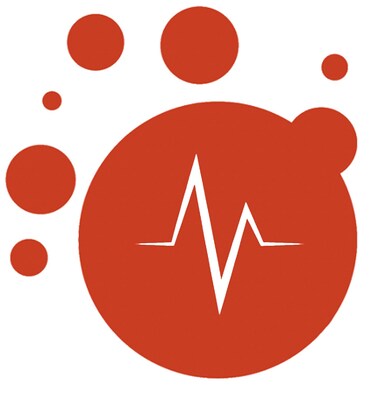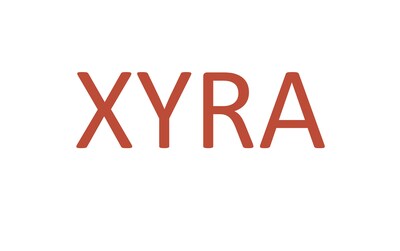Action required: Please refresh your browser
We have recently implemented some changes that require a hard refresh of your browser: Please hold down the CTRL-key and press the F5 key.
After a successful hard refresh, this message should not appear anymore.
More details about this topic are available here »
| XYRA Announces Successful FDA End of Phase 2 Meeting and Agreement on Endpoints for Approval of Budiodarone for the Management of Atrial Fibrillation | ||
| By: PR Newswire Association LLC. - 26 Feb 2024 | Back to overview list |
|
|
LOS ALTOS, Calif., Feb. 26, 2024 /PRNewswire/ -- XYRA LLC, a private biopharmaceutical company committed to developing innovative therapies for cardiac rhythm disorders with high unmet need, is pleased to announce today it has reached agreement with the FDA ("Agency") at a series of End of Phase 2 (EoP2) meetings, on the key studies that will form the basis of approval and labeling of orally administered budiodarone for the long-term management of symptomatic non-permanent atrial fibrillation (AF). The evidence from outcomes studies suggests patients with symptomatic non-permanent AF, whether paroxysmal (PAF) or persistent, characterized by long episodes of atrial fibrillation (LEAF) lasting longer than 5.5 hours are at highest risk for stroke, heart failure and progression to permanent AF. The Agency agrees that reducing LEAF could reduce progression to permanent AF and reduce the risk of stroke. To help identify and manage at risk individuals, the Agency has recently approved multiple wearable AF monitoring devices (e.g. patches and watches) that allow for continuous or semi-continuous monitoring of AF Burden and characterization of harmful LEAF typically over a two-week period.  Of the 7 million diagnosed patients with AF in the US approximately 50% suffer from paroxysmal or persistent AF (non-permanent AF), the most severe cases are characterized by worsening symptomatic LEAF prior to progressing to untreatable permanent AF. The FDA and XYRA agree that the 2 key studies are required for approval. The first is an open label, long term dose titration study of the 4 doses of budiodarone that were effective in Phase 2. Dosing will be guided and titrated upwards by concomitant use of an FDA approved wearable AF monitoring device to ascertain the safety and effectiveness of the therapy at each dose level in a Phase 3 trial. In addition, this study will establish the lowest most effective dose for an individual that controls AF symptoms and eliminates LEAF of any length, and then to discontinue any subjects who are non-responders at the highest dose. The second key study is a 6 month double blind randomized controlled trial of the 4 fixed active doses of budiodarone versus placebo in 500 subjects with symptomatic non-permanent AF and LEAF lasting longer than 5.5 hours. The agreed endpoints for success are the control of symptoms and the proportion of subjects achieving a safe harbor for AF stroke risk reduction by elimination of LEAF >5 hours in the final 4 weeks as reported from validated wearable devices. Both endpoints were achieved with statistical significance in Phase 2 studies. The Agency agrees that there is no need to perform a large long term cardiovascular (CV) outcomes study, either before or after approval. This is a testament to the improved design features introduced into a widely used and well characterized class of drugs, absence of EKG changes at therapeutics doses heretofore used and the need for monitoring with a wearable device to establish a subject on the lowest most effective dose and to discontinue if ineffective. In addition, if the drug continues to be safe and effective in the agreed AF pivotal studies above and a short-term study of ventricular tachycardia (VT) subjects with an implantable cardiac defibrillator (ICD), then approval may be possible within International Conference on Harmonization (ICH) guidance. "Budiodarone is a potentially best-in-class mixed ion channel blocker with features that are designed to enhance safety and efficacy in the treatment of symptomatic non-permanent AF. We wish to thank the Agency for a timely and successful series of EoP2 meetings at which we obtained clear, specific, and useful guidance on the pathway to approval. Integrating FDA approved and validated wearable AF monitoring devices into the development will allow us to identify eligible subjects and ensure they are then established on the lowest effective approved dose." said Peter Milner M.D., FACC, managing member XYRA. "We look forward to collaborating with the Agency to demonstrate budiodarone is both safe and effective for the management of symptomatic non-permanent AF. This is a sizable and growing population with an unmet need and includes subjects with persistent AF that can be cardioverted, and those with PAF at high risk because of LEAF that is refractory to other therapies". About Budiodarone: Budiodarone is a Phase 3 enabled potentially best-in-class mixed ion channel blocker with esterase metabolism and thus a significantly shorter half-life than amiodarone with no evidence of accumulation to date in human or animal studies, whilst having superior efficacy due to its enhanced late sodium channel blocking properties. It has been shown to treat AF by controlling symptoms, eliminating LEAF, reducing AF burden, and maintaining normal sinus rhythm. About Atrial Fibrillation: Atrial Fibrillation (AF) is the most common sustained arrhythmia in adults, with approximately 44 million individuals estimated to have AF worldwide. It is associated with thromboembolic risk, impairment in cardiac performance, and other morbidities. In addition to the patients with symptomatic AF, the diagnosis is often first detected after a stroke, the development of left ventricular dysfunction, or incidentally. The management of AF has evolved over time. Due to accumulating evidence of improved outcomes, previous management strategies that focused on simple ventricular rate control have evolved to present therapies that seek to restore and maintain sinus rhythm. AF may be treated with anti-arrhythmic drugs (AAD), electrophysiological ablation, or some combination of the two. About XYRA LLC: XYRA LLC, is a private biopharmaceutical company committed to developing innovative therapies for cardiac rhythm disorders with high unmet need. The company's goal is to make AF management comparable to that of other common cardiac conditions like hypertension and hypercholesterolemia in which, upward dose titration of effective drugs guided by simple widely available monitoring tools used to confirm compliance and response to therapy, have consistently improved outcomes. For information: www.xyra.us or contact either: cflynn@xyra.us or press@xyra.us Photo - https://mma.prnewswire.com/media/2346660/Xyra.jpg 

|
||
|
|
||
 | Back to overview list | |



